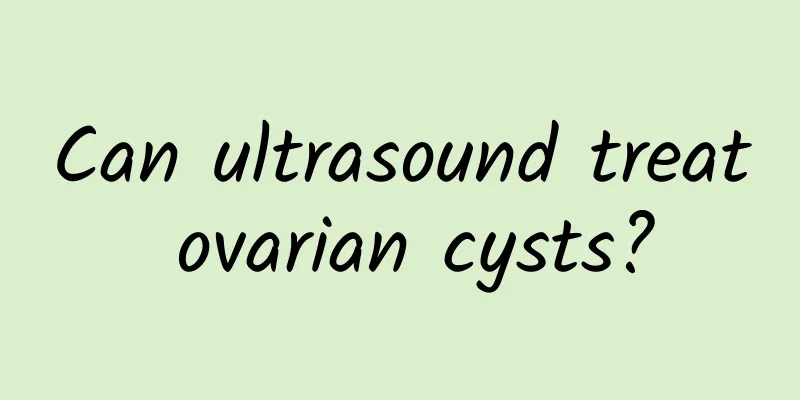Dysfunctional uterine bleedingDysfunctional uterine bleeding causes

|
Dysfunctional uterine bleedingDysfunctional uterine bleeding causes Dysfunctional uterine bleeding is caused by dysfunction of the endocrine axis rather than organic lesions of the reproductive organs, and is characterized by abnormal uterine bleeding with menstrual disorders. Long-term bleeding and severe hemorrhagic shock may occur, even threatening life, but it is also critical to infertility, rather than affecting it. Common causes 1. Systemic factors This factor mainly includes adverse mental trauma, stress, malnutrition, endocrine and metabolic disorders such as iron deficiency, anemia, aplastic anemia, blood diseases and bleeding diseases, diabetes, and thyroid and adrenal diseases. 2. Dysfunction The main causes of this disease include disorders in the rhythm of reproductive hormone release, feedback dysfunction, ovulation and corpus luteum dysfunction. 3. Iatrogenic factors Normal hypothalamic-pituitary-gonadal axis function is disturbed by steroid contraceptives and intrauterine devices. Some systemic diseases, especially those of the psychiatric nervous system, can affect normal menstrual function through neuroendocrine mechanisms. 4. Uterus and endometrium These include abnormalities in the structure and function of spiral arterioles and microcirculatory vascular beds, dysfunction of endometrial steroid receptors and lysosomes, abnormalities in local coagulation mechanisms, and dysregulation of prostaglandin secretion. Predisposing factors Polycystic ovary syndrome This is the main cause of functional uterine bleeding in women. This disease is mainly manifested by increased androgen levels in women, which in turn causes problems such as hirsutism, acne and obesity. Hirsutism is a typical manifestation of increased androgen. In addition to the increase in hair on the limbs, a more characteristic feature of Asians is the presence of hair longer than sweat hair on the areola or under the navel. Even if there is only one hair, it has diagnostic significance. |
<<: Clinical examination of endometrial polyps
>>: There are several specific misunderstandings about pelvic inflammatory disease
Recommend
Get your slim waist back with yoga side stretches
In addition to eating less and doing more abdomin...
What are the symptoms of uterine adhesion after abortion? Two tests should be done after abortion to rule out uterine adhesion
Abortion is a relatively common surgery, but it i...
What are the typical symptoms of threatened abortion?
Typical symptoms of threatened abortion include v...
Is recurrent spontaneous abortion easy to treat? How to treat recurrent spontaneous abortion?
There are many reasons for recurrent miscarriage,...
8 tips to boost metabolism~Nutritionists help you lose weight...
Have you ever felt that after you turn 30, your b...
What are the symptoms of vaginitis?
Vaginitis is one of our common diseases, but if v...
Most women will get cervicitis after pregnancy? It is better to know these common knowledge about cervicitis as early as possible
After getting married, women will consider having...
Can skipping breakfast help you lose weight? May increase the risk of diabetes and obesity! 4 principles of not eating fat for breakfast
As the saying goes, "Eat breakfast like a ki...
What are the prevention methods of ovarian cysts?
It is very important for women to do a good job i...
How long will the abdominal pain of ectopic pregnancy last and how should it be treated?
Ectopic pregnancy can cause abdominal pain, vagin...
What are the symptoms of postmenopausal cervical adhesions?
Symptoms of postmenopausal cervical adhesions inc...
What to check for cervical precancerous lesions
To treat cervical precancerous lesions, it is nec...
Several effective methods to relieve dysmenorrhea
After suffering from dysmenorrhea, women will fee...
Anti-aging reduces the risk of death National Health Institute: Muscle quantity is the key
Do you have enough muscle mass? Finding ways to g...
Dysfunctional uterine bleeding during menopause
Dysfunctional uterine bleeding during menopause r...









